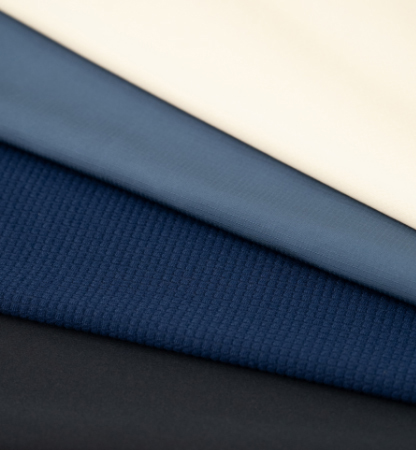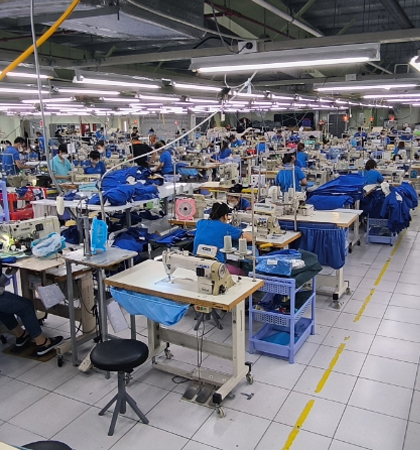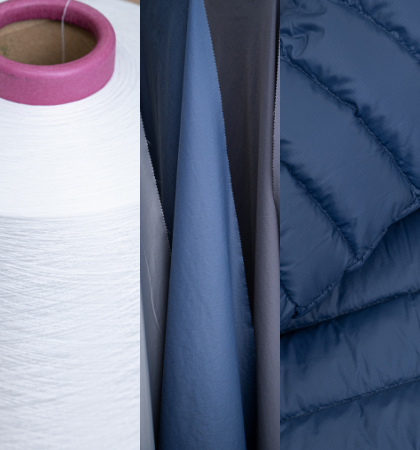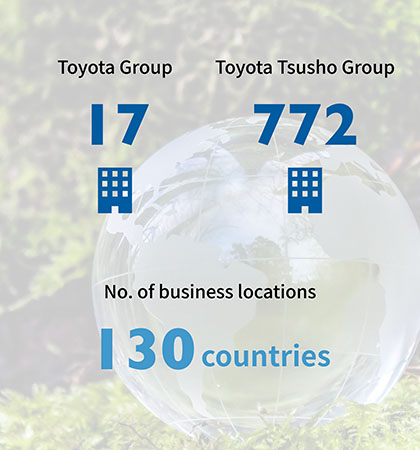01 
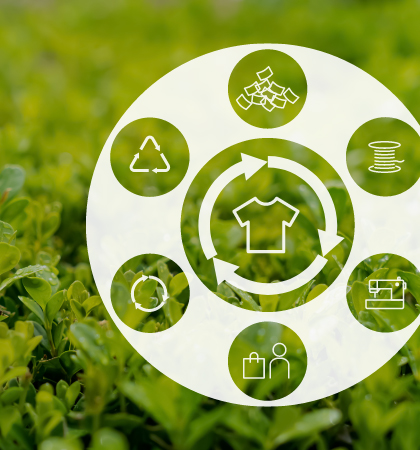
Circular design manufacturing
With the aim of helping to realize the circular economy, we undertake manufacturing that incorporates resource recovery as a key part of the process.
The PATCHWORKSTM project was launched with the goal of building a new future by creating opportunities for all apparel items that have been discarded as waste to be recycled to make new apparel by 2050. This is a project to promote the development of the circular economy in the fiber and fashion sector. The initial phase involves working together with various partners to target the main categories of fiber used in apparel manufacturing – including polyester, cotton, and nylon – and build a reverse supply chain (RSC) “textile-to-textile” cycle whereby used apparel, etc. is collected and recycled. In the forward supply chain (FSC), we are working with partner companies to drive the development of recycling-friendly fiber materials and products. In this way, we are promoting the effective utilization of resources and contributing toward the realization of the sustainable society.
Related products:




